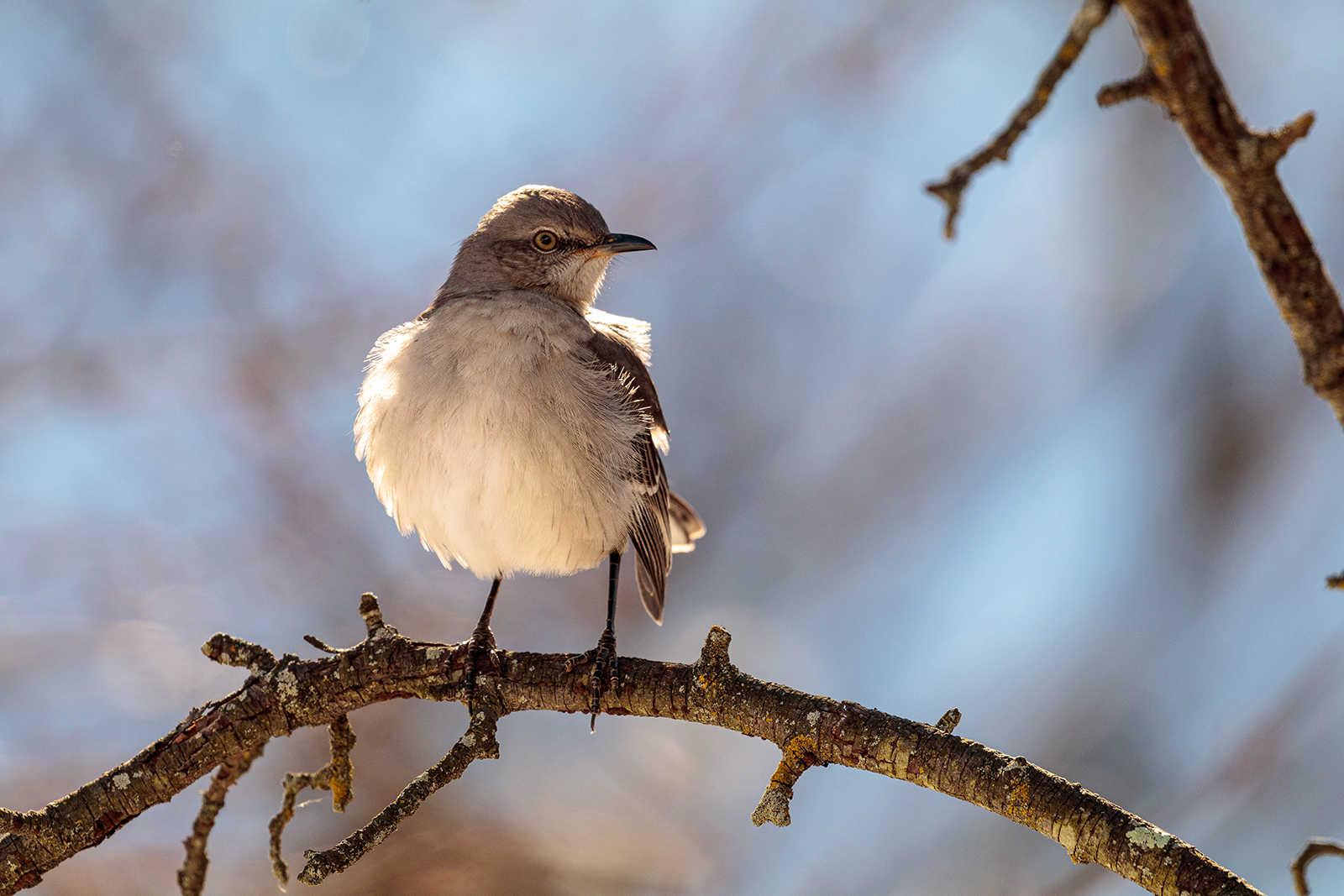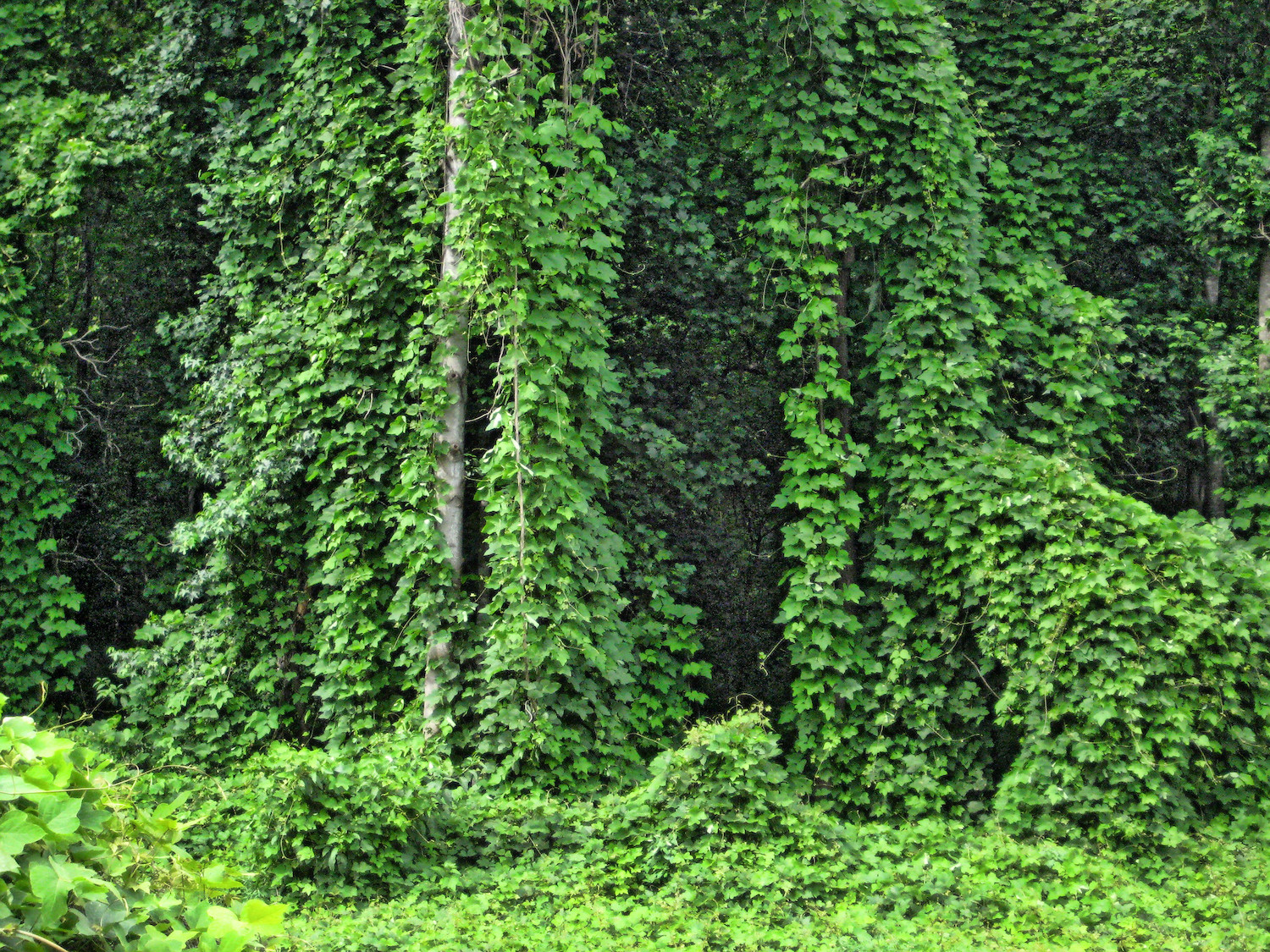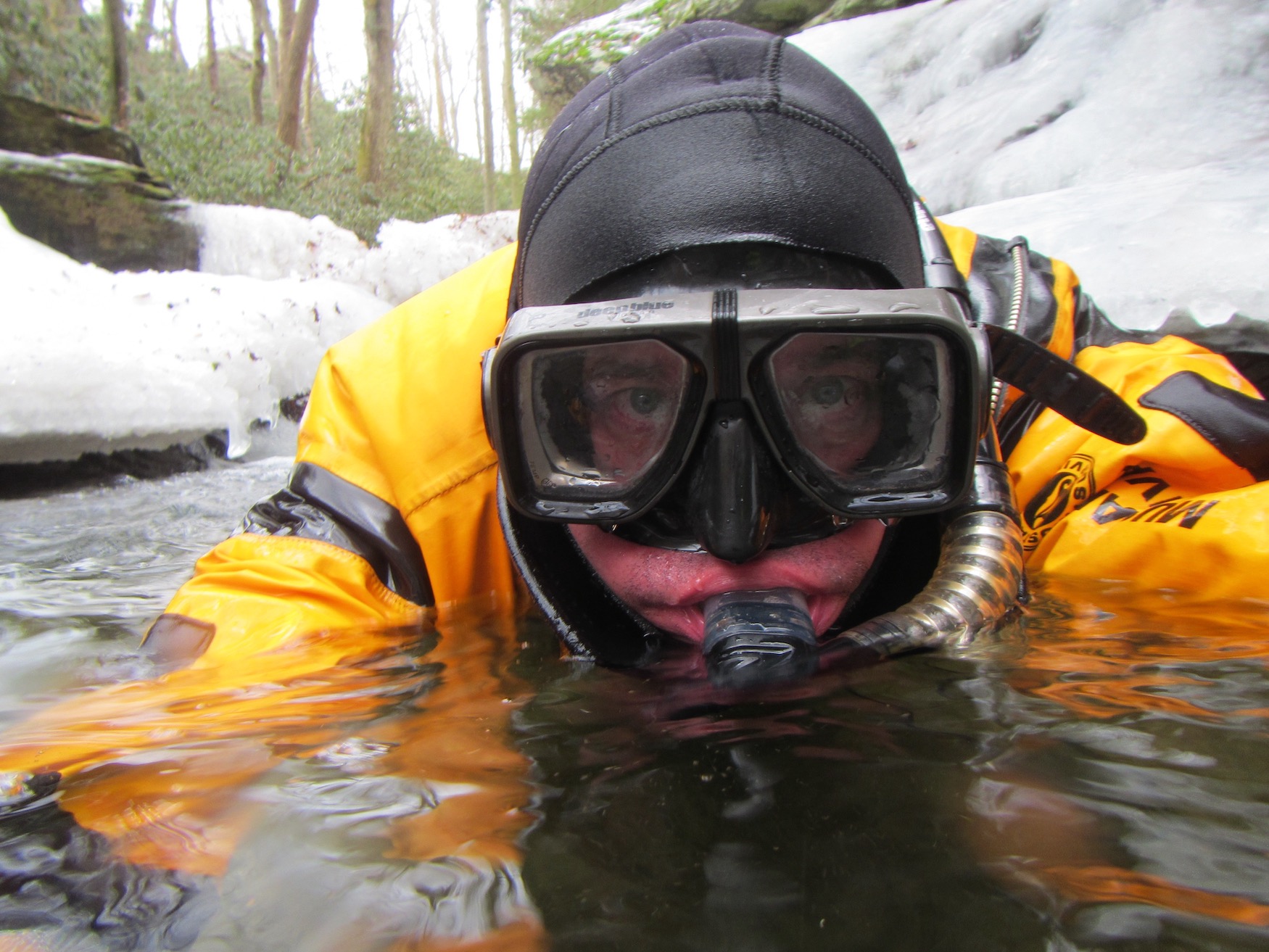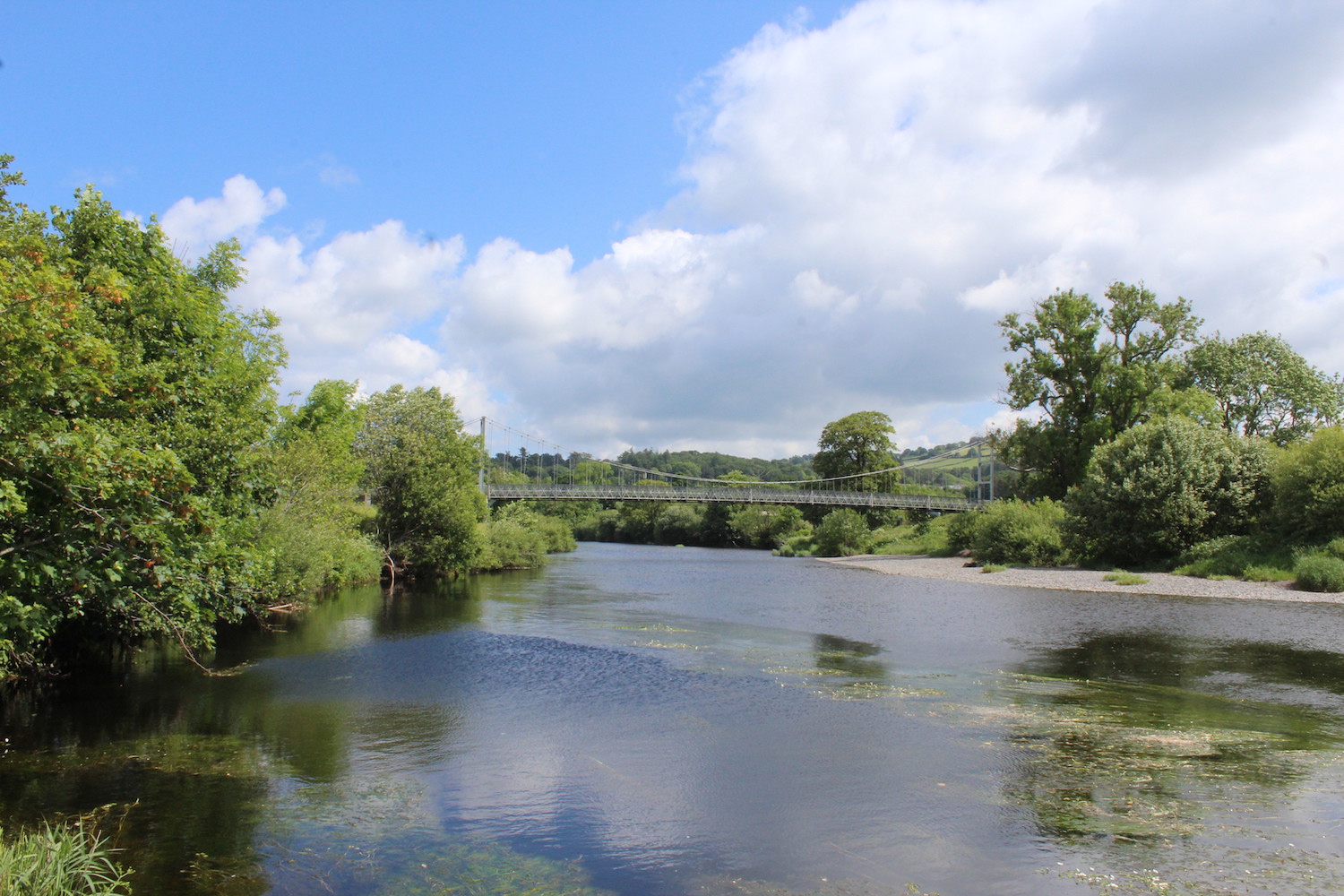This story is part of a series designed to introduce the perspectives of alumni from The Nature Conservancy and the National Geographic Society’s global youth externship program . Each guest author is an emerging leader in conservation and storytelling.
I am just one of many blue mussels living in the Conwy estuary, clinging to the rocks underwater as the current flows above me. For many years, I have watched the sunlight shimmer through the surface and light up my world down below. But today something is terribly wrong: my shell is heavy, I am changing colour, I am weak and struggling to survive. The worst part is I am not the only one; there are so many others in the exact situation. The pristine waters of Conwy, my home, have become a dangerous place that is tainted by pollution and neglect.
I am slowly dying; my family is slowly dying, and the rest of my community, too. I am reaching out, to listen to my story and join the fight to protect the Conwy River. Conserving the river won’t only help us — the mussels — to survive, but all the other creatures in the river and ultimately the local fishermen of Conwy. Together, we can act to save my home
Afon Conwy
North Wales is renowned for its lush landscapes, temperate climate and ample rainfall. The region’s natural beauty is underscored by its rugged mountains and tranquil rivers. The Conwy River, called Afon Conwy in Welsh, originates in the Migneint Moorlands of Snowdonia. Fed by multiple tributaries, it flows for 55 kilometers before discharging into the Irish Sea. At its mouth, Conwy forms a dynamic estuary that supports species adapted to both freshwater and saltwater, including the common blue mussel (Mytilus edulis ).
Yet, beneath the river’s serene surface lies a growing environmental threat that jeopardizes the ecosystems which are dependent on the river. The Conwy River is increasingly polluted due to sewage runoff, agricultural runoff, and abandoned mines in the local area.
Become An Extern
Join hundreds of global youth who are connecting with The Nature Conservancy and the National Geographic Society.
” data-medium-file=”https://blog.nature.org/wp-content/uploads/2024/08/4464667181_b27a8d286f_k-edited.jpg?w=300″ data-large-file=”https://blog.nature.org/wp-content/uploads/2024/08/4464667181_b27a8d286f_k-edited.jpg?w=630″ tabindex=”0″ role=”button” src=”https://blog.nature.org/wp-content/uploads/2024/08/4464667181_b27a8d286f_k-edited.jpg” alt >Agricultural runoff. © eutrophication&hypoxia / Flickr
My Role in The River Conwy’s Future As the quality of the Conwy River catchment declines, the once-thriving populations of mussels are being driven to the brink and we must work together to ensure their survival.
By interviewing and collaborating with local experts and community members, I built valuable connections to support ongoing conservation efforts. This experience allowed me to contribute meaningful initiatives to protect my local environment and the precious common blue mussel species.
” data-medium-file=”https://blog.nature.org/wp-content/uploads/2024/08/9906092705_47c5a72982_k-edited.jpg?w=300″ data-large-file=”https://blog.nature.org/wp-content/uploads/2024/08/9906092705_47c5a72982_k-edited.jpg?w=630″ tabindex=”0″ role=”button” src=”https://blog.nature.org/wp-content/uploads/2024/08/9906092705_47c5a72982_k-edited.jpg” alt >Sewage holding tanks. © diamond geezer / Flickr
Keeping Afon Conwy Clean Even with all the issues that are currently present in the Conwy River, my research shows that using a multi-faceted approach the pollution challenges of the Conwy can be addressed. There are a few ways the community can act together, combining the government with individuals.
The first challenge is managing sewage overflow. We can do this by installing sewage holding tanks to delay the release of sewage during peak periods, as well as conducting more regular maintenance and testing of sewage pipes to prevent leaks.
Simple tests, such as using inflatable plugs to detect small leakages, can help ensure the integrity of the sewage system. We should also ensure that the infrastructure is maintained with backup power systems for continuous operation, as well as available staff and sufficient means of funding.
The next challenge is to control eutrophication. To do this, we should implement vegetative buffer strips around agricultural fields to filter pesticides and excess nutrients. Finally, we need to reduce heavy metal contamination in the river. Acid mine drainage treatment systems can stabilize metals and reduce solubility, while adding alkaline substances to the contaminated water to prevent further contamination. We can also employ settling tanks or filtration units to remove heavy metals before they reach the river.
Continuing the Conservation of Conwy River
Following my journey with this externship I have secured seed funding to continue to raise awareness about the Conwy River’s environmental challenges. I am writing a bilingual (English and Welsh) children’s book with watercolor illustrations to educate the younger generation. The book tells the story of four Welsh mussels each highlighting an issue regarding water quality and resolving them together as a team. Furthermore, I aim to create a documentary that will display the natural beauty of Conwy Valley contrasting with the environmental issues. This documentary will serve as a call to action for the local community.
As for the blue mussels, the issues they face are not unique to Conwy, or to North Wales. Freshwater pollution’s impact on shellfish is part of a global problem, with rivers worldwide facing similar contamination challenges affecting mussels and other species. Pollutants in the rivers have severe effects on the ecosystems, but also on local and global economies, where people’s livelihoods depend on these species. This externship allowed me to contribute to global conservation efforts and make impacts both locally and globally.
Manas Ranjan Sahoo
I’m Manas Ranjan Sahoo: Founder of “Webtirety Software”. I’m a Full-time Software Professional and an aspiring entrepreneur, dedicated to growing this platform as large as possible.
I love to Write Blogs on Software, Mobile applications, Web Technology, eCommerce, SEO, and about My experience with Life.





